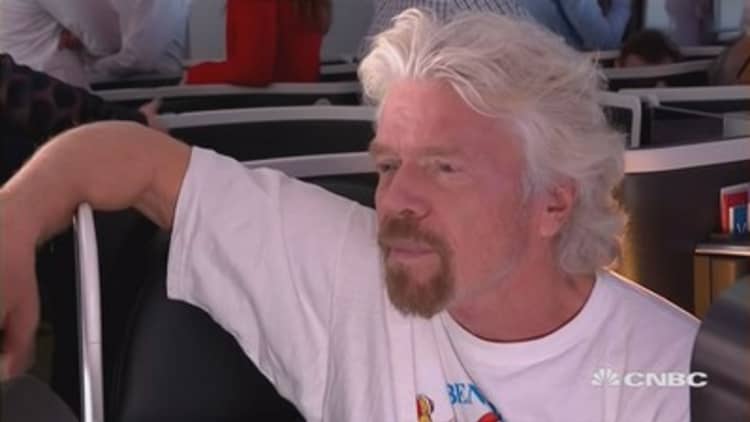The U.K. cannot expect to leave the single market and keep all of its trade benefits, the European Commission's chief Brexit negotiator Michel Barnier said on Thursday.
Barnier told an EU business forum in Brussels that "frictionless trade" between Europe and the U.K. would "not (be) possible" if the U.K. decided to leave the EU's single market. He added that the U.K. had "more to lose than its partners" if it took this direction.
"I have heard some people in the U.K. argue that one can leave the single market and keep all of its benefits – that is not possible," he said at the meeting.
The chief negotiator said that leaving without a deal would not be beneficial to either party in the divorce talks. But he said the EU would be ready for "all eventualities," including the possibility of failing to reach a deal.
"We want to be ready for all eventualities, including 'no deal', a possibility that has been mentioned again recently by several British ministers," he said. "In practice, 'no deal' would worsen the 'lose-lose' situation which is bound to result from Brexit. And the U.K. would have more to lose than its partners."
Barnier, who served as the European Commissioner for Internal Market and Services before taking up the role of chief Brexit negotiator, warned of extortionate tariffs and customs duties in the event of a 'no deal' departure.
No deal, he said, would mean EU trade relations with the U.K. would be based on World Trade Organization rules.
"There would be customs duties of almost 10 percent on vehicle imports, an average of 19 percent for alcoholic beverages, and an average of 12 percent on lamb and fish, for which the vast majority of British exports go to the EU," he said.
U.K. Prime Minister Theresa May has previously said that the U.K. could leave without a formal deal being reached in divorce talks with the EU. She said in a speech in January that "no deal for Britain is better than a bad deal for Britain" – a phrase which also made an appearance in her Conservative Party's manifesto during last month's general election.
Liam Fox, the U.K.'s international trade secretary, said that the U.K. government remained committed to exiting the customs union. "We want Britain to be able to negotiate our own trade agreements with old and new allies across the globe," he said in a blog post on Thursday. "That means leaving the customs union and establishing a trade policy tailored for our business, our economy, and our citizens."
Addressing U.K. parliament, Fox criticized pessimism over Brexit talks. "At 9.30 this morning we published figures that showed a record-breaking number of foreign direct investment projects came in to the UK in 2016/17, at 2,265, and that's safeguarding nearly 108,000 jobs or creating new jobs in the UK," he said. "No doubt the usual suspects will describe it as 'despite Brexit'."
The minister made no mention of Britain's membership of the single market.
"We want a comprehensive free trade agreement and a new customs agreement which makes trade as frictionless as possible," a spokesman for the U.K. government told CNBC over the phone. "We're just at the beginning of negotiations but I would say that the most frictionless trade between the UK and the EU is clearly in the interests of both sides."

